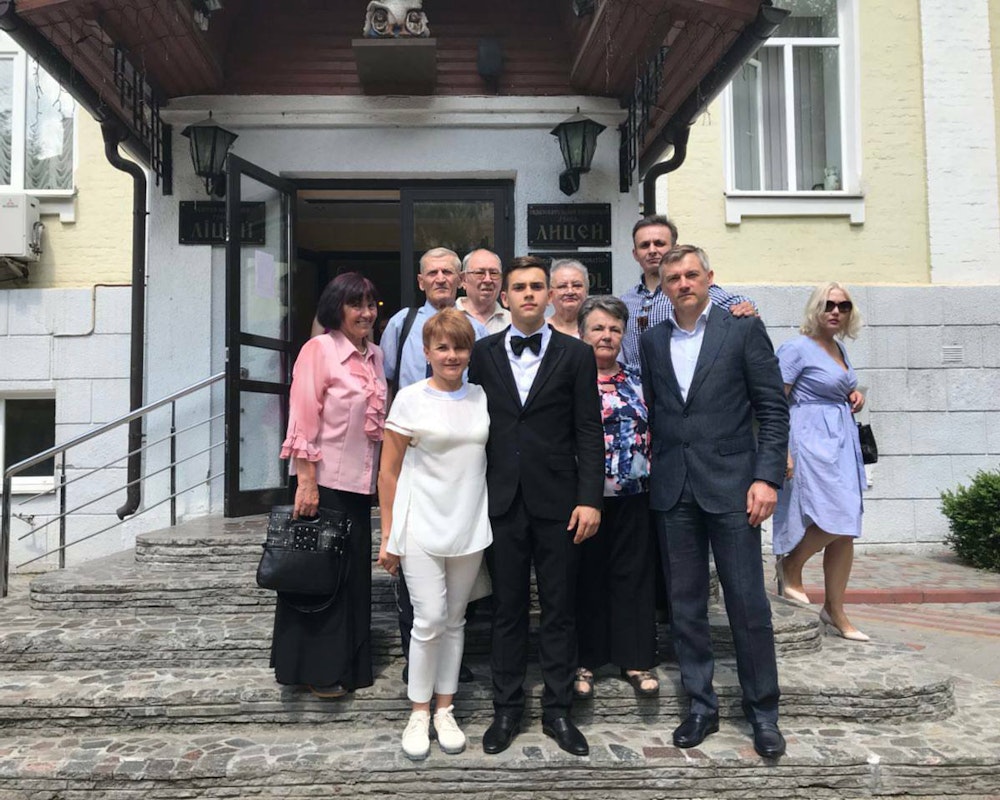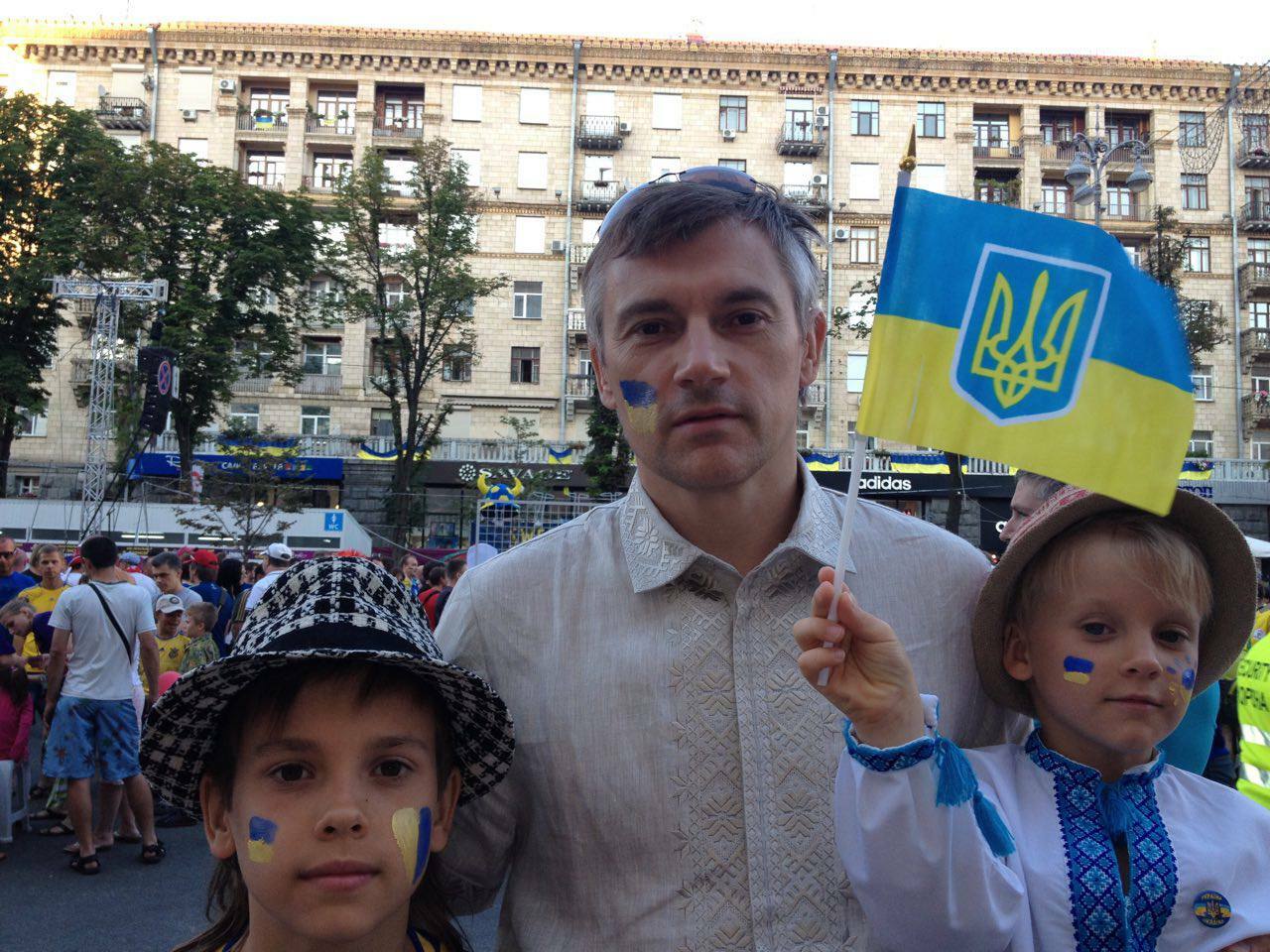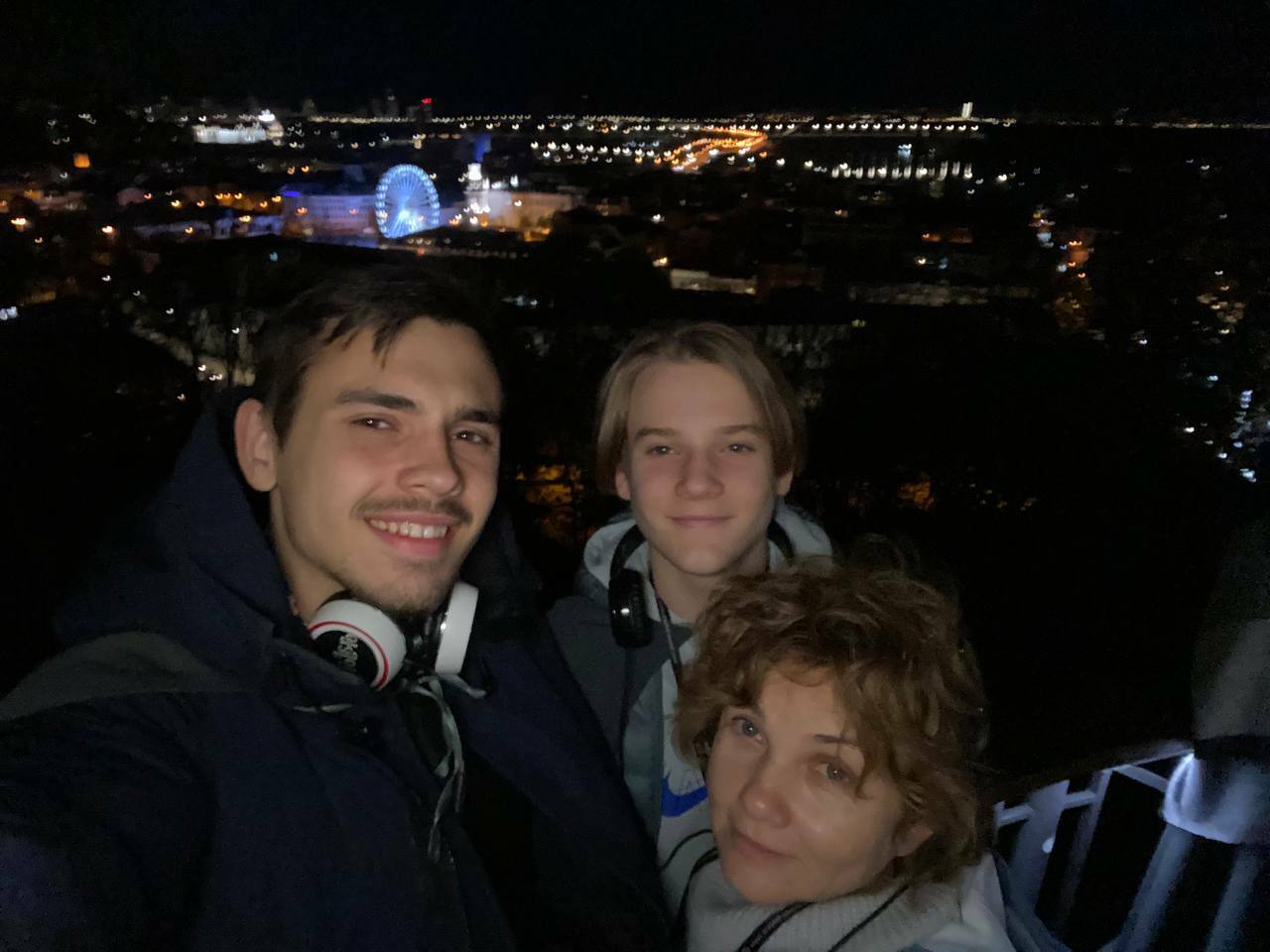
My Worst Nightmares
It’s a challenge being a college student when my home country is under siege
April 5, 2022
I am a student from Ukraine studying at Pennsylvania State University. I chose to pursue my higher education in the United States for many reasons, among which was to escape a possible further escalation of the conflict that began in 2014 when Russia annexed Crimea. But my worst nightmares came to life on February 24, 2022, when Russia launched an attack on my home country. My entire family was asleep at five a.m. in Kyiv when the first missiles hit the city, so my urgent phone call telling them to leave the country did not wake them up—explosions did. I cannot express what it is like to see your hometown, your entire home country, bombed to pieces. And all the while, as the war continues, I am grappling with being a college senior and making sure I pass my classes in order to graduate.

For the first three nights and days after the start of the attack, I couldn’t sleep or eat, but I had to mentally concentrate so that I could help my family and friends who were trapped in Ukraine. A big part of helping them has simply been to talk to them to make sure they don’t feel alone in these times of terror. I’ve contacted people I haven’t heard from in years, because I saw that a bomb landed somewhere near their houses. Being a student at this time has felt like an impossible mission—to focus on schoolwork has meant not focusing on what is happening to my closest relatives. I am also afraid of missing a piece of news or a social media post with information that I might immediately need to inform everyone back home about.
When the war started, I emailed my professors and asked for the maximum three-week extension on assignment deadlines. My professors were aware of what was going on and let me know that the extensions were not a problem. They also gave me useful information about how to contact university resources I might need for support. Penn State officials from academic advising, counseling, international affairs, and other services contacted me to offer financial, psychological, and humanitarian help (such as free meals at dining halls and donated clothing). I am grateful for everyone’s assistance, and after nearly three weeks, I managed to put my mind at some mild ease and continue my studies. For the most part, I caught up well, but I unfortunately had to drop some classes, which will cause me to graduate a month late. I also had a couple of arguments with classmates over a group project. A full-scale war in my home country did not seem to be enough of an excuse to skip my part in one group assignment.

In the days since the war started, my fellow members of the Ukrainian Society at Penn State and I have held many events and rallies to collect money to provide direct support for people who are fighting, as well as for people who have fled the country. We raised more than $7,000 in direct donations and gathered countless boxes of clothes, food, home appliances, utensils, toothbrushes, and other humanitarian aid, as well as some military equipment from friends who have served in the US military, such as night vision goggles and combat gear. Our thoughts and words of support were published in multiple local newspapers and magazines to spread awareness of the ongoing conflict. I personally collected $700, which, along with some of my own money, went to my close friends in the military for bulletproof vests.
More than a month of war has gone by, and Russia continues to bomb Ukraine, even using, according to Ukrainian officials, white phosphorus and cluster bombs. Cities such as Volnovakha, Izyum, and Mariupol have been destroyed, and more than 1,100 civilians have been killed. More than four million people have fled, including most of my immediate family—my mother, younger brother, and sister with her three small children are now all in Poland. While tensions between Ukraine and Russia have been high since Ukraine declared independence from the Soviet Union in 1991—followed by two Chechen wars and the annexation of Georgian territories and Crimea—the current war has caused me to feel hatred I never had before. In most post-Soviet countries, including in Russia, May 9 is a national holiday to celebrate victory over Nazism and fascism. This holiday is supposed to remind people how horrible war is for everyone involved, yet Russia has started another war in the middle of Europe.
When all the dust is settled and Ukraine prevails, I hope no country or a single person in the world admires the authoritarian regime in Russia, which must not be tolerated as a threat to global existence, independent countries, or democracy and freedom. My sophomore year at Penn State, I took a course on the history of world wars, and my professor quoted British Prime Minister Neville Chamberlain: “In war, whichever side may call itself the victor, there are no winners, but all are losers.” But every morning, when I wake up, I know that in the end Ukraine will win, and we will again stand solid and united. It is important that we keep working to make the best out of our current position, so I won’t let fear get the best of me, and I will continue pursuing my goals as a student and as a person.
Lead photo: Danylo Yakymov (center) with his family in Kyiv on his high school graduation day.